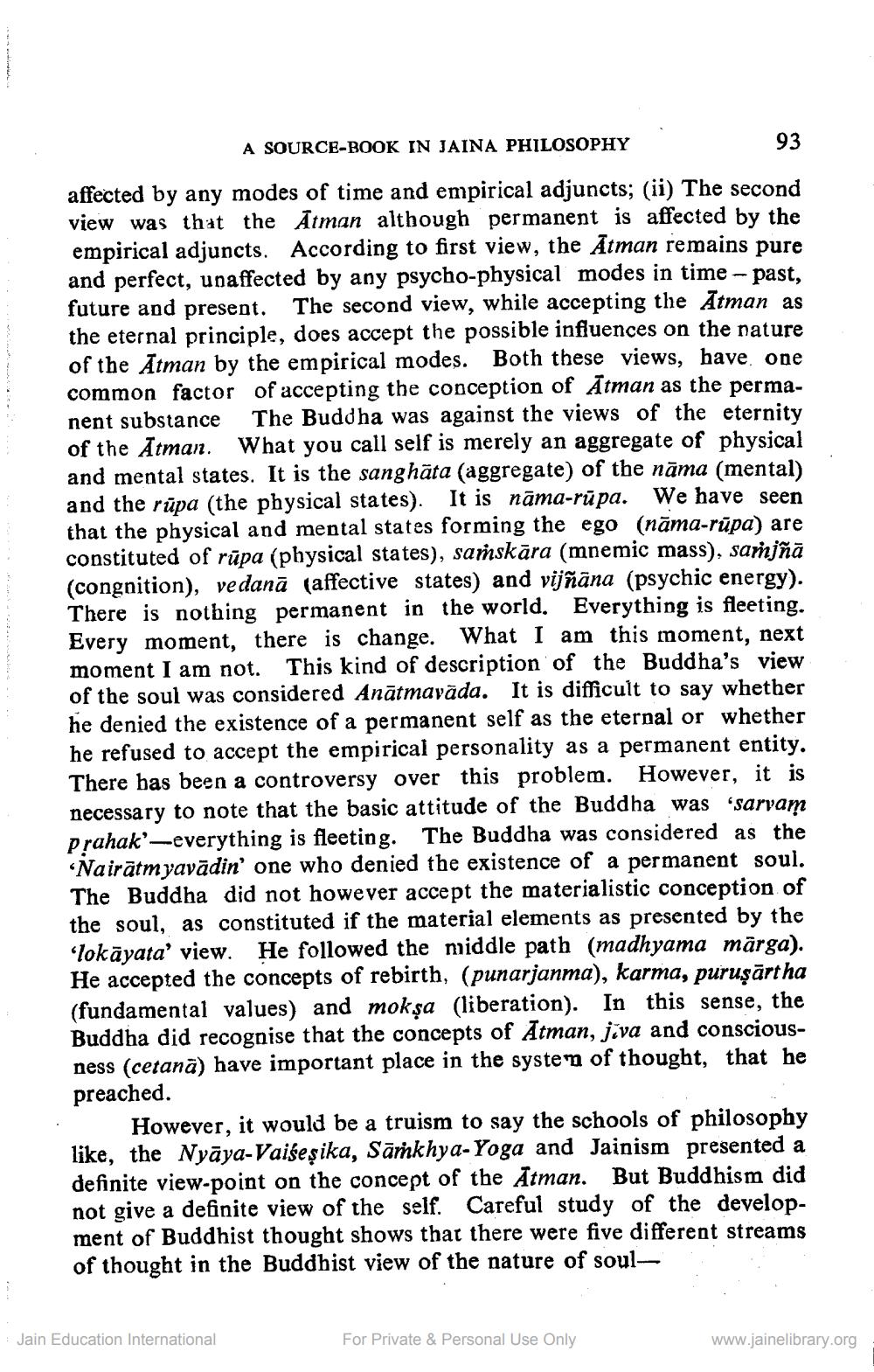________________
A SOURCE-BOOK IN JAINA PHILOSOPHY
93
affected by any modes of time and empirical adjuncts; (ii) The second view was that the Ātman although permanent is affected by the empirical adjuncts. According to first view, the Ātman remains pure and perfect, unaffected by any psycho-physical modes in time - past, future and present. The second view, while accepting the Atman as the eternal principle, does accept the possible influences on the nature of the Atman by the empirical modes. Both these views, have one common factor of accepting the conception of Ātman as the permanent substance The Buddha was against the views of the eternity
tman. What you call self is merely an aggregate of physical and mental states. It is the sanghāta (aggregate) of the nāma (mental) and the rūpa (the physical states). It is nāma-rūpa. We have seen that the physical and mental states forming the ego (nāma-rūpa) are constituted of rūpa (physical states), sarskāra (mnemic mass), saṁjñā (congnition), vedanā (affective states) and vijñāna (psychic energy). There is nothing permanent in the world. Everything is fleeting. Every moment, there is change. What I am this moment, next moment I am not. This kind of description of the Buddha's view of the soul was considered Anātmavāda. It is difficult to say whether he denied the existence of a permanent self as the eternal or whether he refused to accept the empirical personality as a permanent entity. There has been a controversy over this problem. However, it is necessary to note that the basic attitude of the Buddha was 'sarvam Prahak'-everything is fleeting. The Buddha was considered as the "Nairātm yavādin' one who denied the existence of a permanent soul. The Buddha did not however accept the materialistic conception of
pul, as constituted if the material elements as presented by the 'lokāyata' view. He followed the middle path (madhyama märga). He accepted the concepts of rebirth, (punarjanma), karma, puruşārtha (fundamental values) and mokşa (liberation). In this sense, the Buddha did recognise that the concepts of Ātman, jiva and consciousness (cetanā) have important place in the system of thought, that he preached.
However, it would be a truism to say the schools of philosophy like, the Nyāya-Vaiseșika, Sāṁkhya-Yoga and Jainism presented a definite view-point on the concept of the Atman. But Buddhism did not give a definite view of the self. Careful study of the development of Buddhist thought shows that there were five different streams of thought in the Buddhist view of the nature of soul
Jain Education International
For Private & Personal Use Only
www.jainelibrary.org




